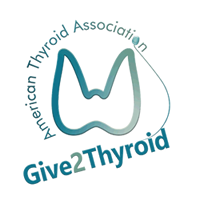BACKGROUND
Hypothyroidism causes a wide range of problems in the body, affecting vital systems like heart and blood vessels. Symptoms of hypothyroidism include feeling slow, sluggish, cold, puffy, constipated and dry skin. In its’ extreme form, severe hypothyroidism, known as myxedema coma, can cause death. Hypothyroidism can also increase blood cholesterol levels. Because of this, studies have tried to determine the risk of death in patients with hypothyroidism. Some studies showed an increased risk while others showed either no rick or a decreased risk.
This study aimed to investigate the risk of death in patients with hypothyroidism as well as examining the effects of over- and under-treatment of hypothyroidism with thyroid hormone.
THE FULL ARTICLE TITLE:
Lillevang-Johansen M et al 2018 Over- and undertreatment of hypothyroidism is associated with excess mortality: a register-based cohort study. Thyroid 28:566–574. Epub 2018 Apr 26. PMID: 29631518.
SUMMARY OF THE STUDY
The study was done in Denmark. Several large national registries were used to collect information about thyroid tests, diagnoses, and filled prescriptions between January 1, 1995 and January 1, 2011. Patients who had at least two elevated TSH levels within a 6-month period or one elevated TSH and two filled thyroid hormone prescriptions in the following year were included in the study. Patients who had thyroid surgery or radioactive iodine treatment, who had earlier hyperthyroidism or pituitary disease, younger than 18 years old, or who were lost to follow-up were excluded from the study. There were 3 groups: 1) hypothyroid patients who were treated with thyroid hormone (2235 individuals, 76.9%),




